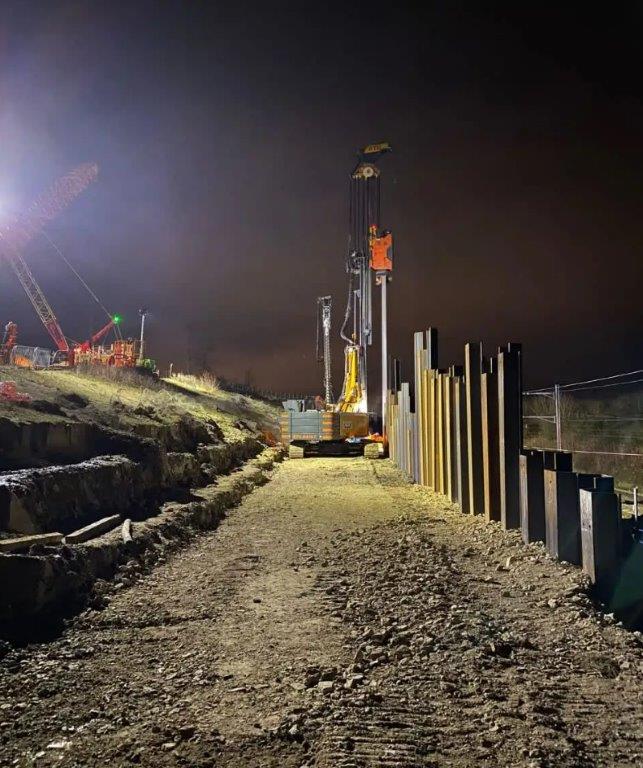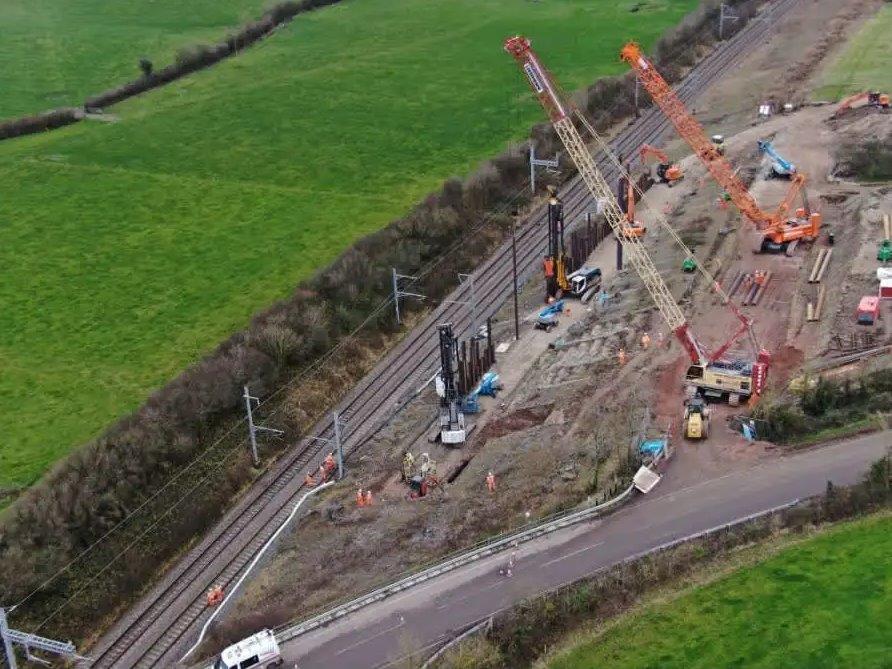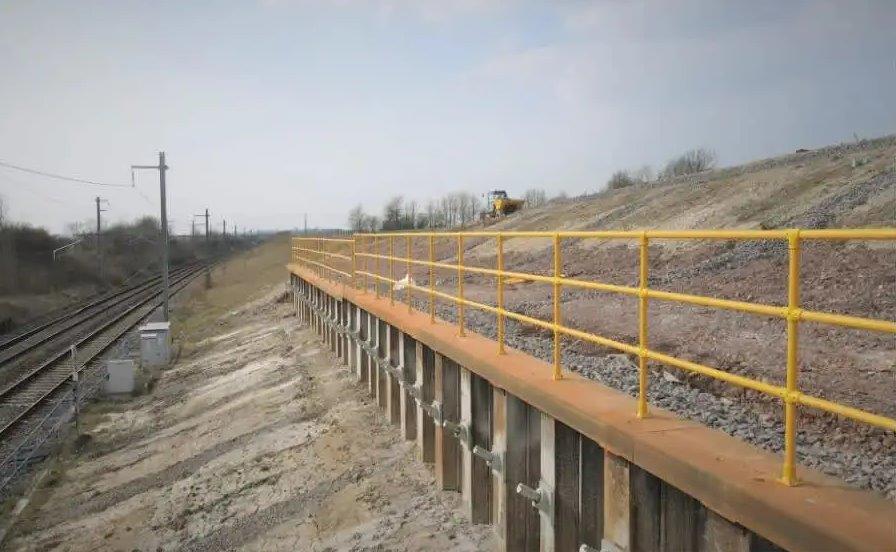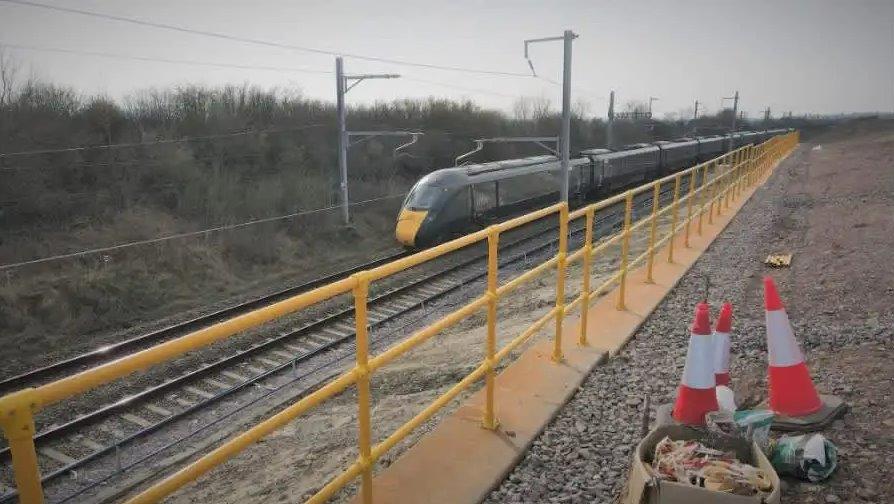Challenging Embankment Stabilization at Callow Hill Rail Cutting
DYWIDAG provided an effective solution to stabilize an embankment at Callow Hill Rail Cutting, supporting the busy Swindon to Bristol rail line, amid challenging weather and site conditions.
Context
The embankment at Callow Hill Rail Cutting, located in Wiltshire, was unstable and failing, threatening the twin-track rail line. A slope stability analysis revealed the presence of cohesive soils with underlying sands and gravels. The project faced extreme weather disruptions, including hurricane-force winds from tropical storm ‘Barra,’ and required additional resources. Difficult drilling conditions, a narrow access mat, and coordination with other contractors added complexity. All work was to be carried out under rail possessions (temporary closures for maintenance).
Solution
A steel piled wall, combined with DYWIDAG Dywi Drill Tension Piles, was selected as the most effective solution. The retaining wall and anchoring system were installed over two weekend rail blockades.
Universal Piling Ltd, DYWIDAG's specialist contractor, installed the piles using an RTG 19T telescopic leader rig, supported by a 100-ton tracked crane. The tension anchors, 18 meters long and galvanised, were installed using a Ripamonti soil nailing mast. A total of 84 tension ground anchors were added.
Outcome
Despite disruptions caused by Storm Barra, the project was completed on time, with all 168 sheet piles installed successfully. Richard Edlington, Programme Manager at Network Rail, commended the team's perseverance, and Francis McGarry, Investment Director, emphasized the leadership in overcoming real-world challenges to deliver the project for passengers.
DYWIDAG provided an effective solution to stabilize an embankment at Callow Hill Rail Cutting, supporting the busy Swindon to Bristol rail line, amid challenging weather and site conditions.
Context
The embankment at Callow Hill Rail Cutting, located in Wiltshire, was unstable and failing, threatening the twin-track rail line. A slope stability analysis revealed the presence of cohesive soils with underlying sands and gravels. The project faced extreme weather disruptions, including hurricane-force winds from tropical storm ‘Barra,’ and required additional resources. Difficult drilling conditions, a narrow access mat, and coordination with other contractors added complexity. All work was to be carried out under rail possessions (temporary closures for maintenance).
Solution
A steel piled wall, combined with DYWIDAG Dywi Drill Tension Piles, was selected as the most effective solution. The retaining wall and anchoring system were installed over two weekend rail blockades.
Universal Piling Ltd, DYWIDAG's specialist contractor, installed the piles using an RTG 19T telescopic leader rig, supported by a 100-ton tracked crane. The tension anchors, 18 meters long and galvanised, were installed using a Ripamonti soil nailing mast. A total of 84 tension ground anchors were added.
Outcome
Despite disruptions caused by Storm Barra, the project was completed on time, with all 168 sheet piles installed successfully. Richard Edlington, Programme Manager at Network Rail, commended the team's perseverance, and Francis McGarry, Investment Director, emphasized the leadership in overcoming real-world challenges to deliver the project for passengers.




